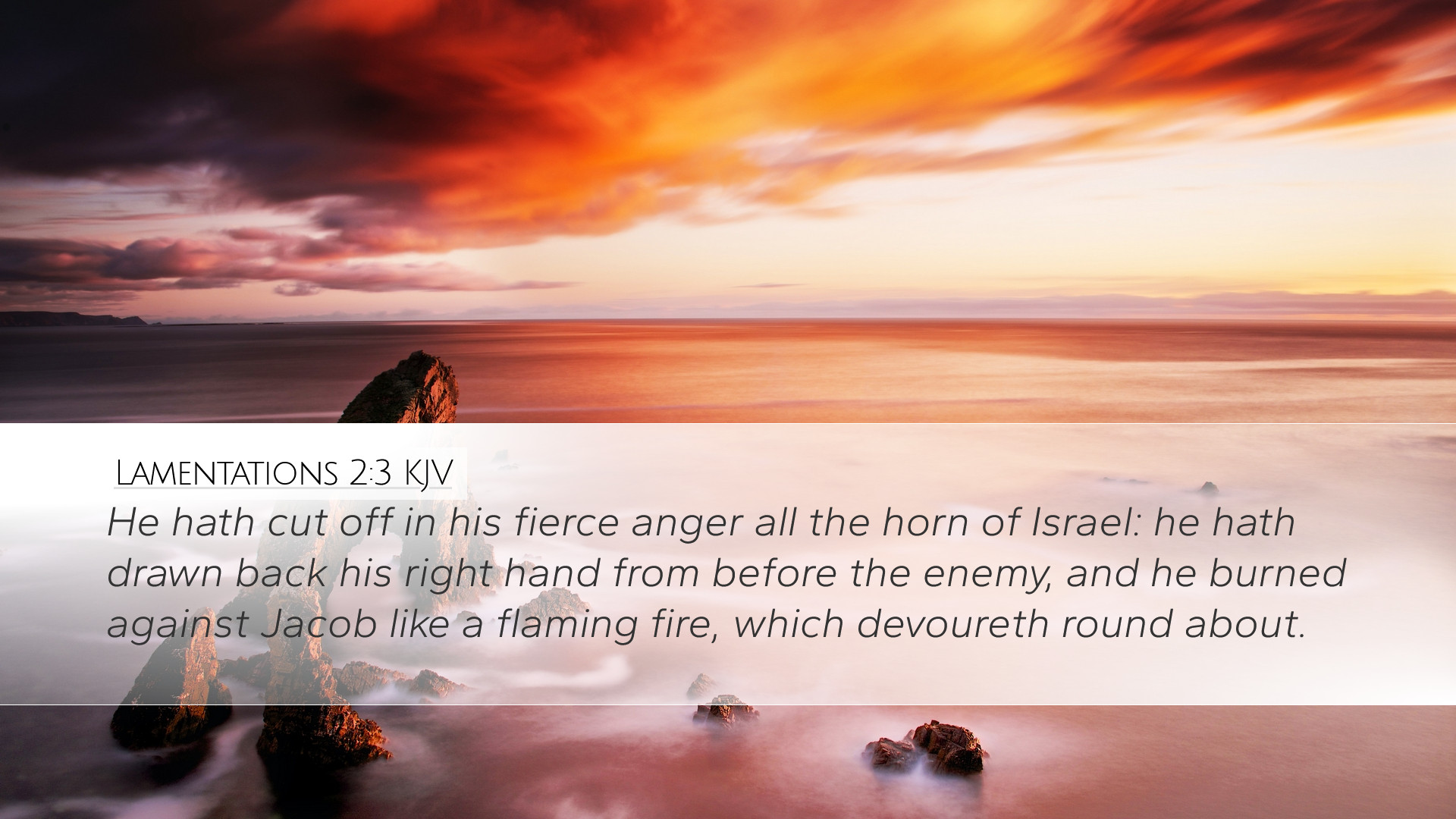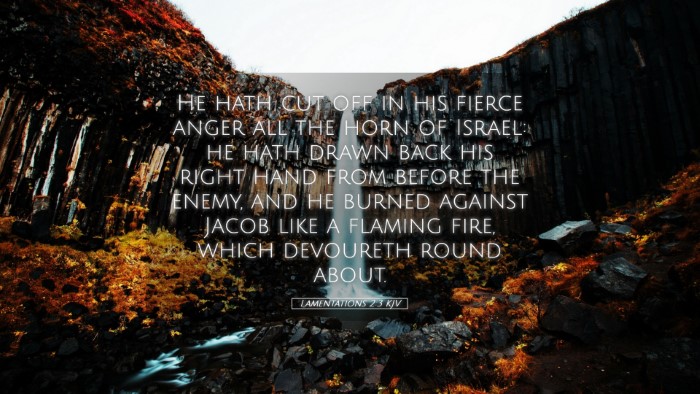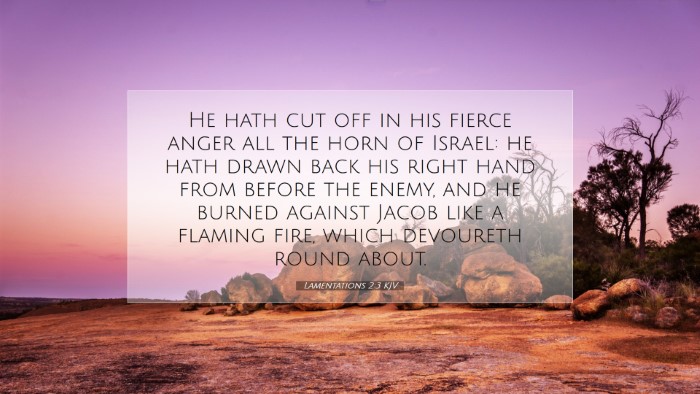Lamentations 2:3 Commentary
Bible Verse: "He has cut off in fierce anger all the horn of Israel; he has drawn back his right hand from before the enemy, and he burned against Jacob like a flaming fire which devours round about."
Introduction
This verse from Lamentations is laden with profound sorrow and serves as a stark illustration of divine judgment against Israel. Within this context, the prophet Jeremiah expresses the intense suffering and the resultant desolation that follows the fall of Jerusalem. As we delve into the insights offered by prominent public domain commentators, we can glean a deeper understanding of this scripture's implications for both its historical setting and its spiritual significance.
Theological Overview
The lament of Jeremiah highlights the severity of God's judgment. Each element in this verse contributes to the overarching theme of divine wrath and the consequences of sin, with particular emphasis on the ramifications for the people of Israel as they grapple with their national catastrophe.
Commentary from Matthew Henry
Matthew Henry notes that God's displeasure is here manifested in a comprehensive and terrifying form. The "horn of Israel," symbolic of strength and power, has been cut off. According to Henry, this cutting off signifies the loss of royal dignity and military might, communicating the depth of Israel's degradation. Henry underscores the irony that despite God's previous promises of protection, the disobedience of the people led to this state of desolation.
Insights from Albert Barnes
Albert Barnes elucidates that the “fierce anger” of God highlights His righteous indignation towards sin. He explains that this verse serves as a warning against complacency in faith and obedience. Barnes also emphasizes that God’s action—drawing back His right hand—indicates the withdrawal of His protective presence, which had been a source of strength for Israel. Consequently, the enemies of Israel became bold and ferocious as divine protection was removed.
Analysis by Adam Clarke
Adam Clarke brings attention to the vivid imagery within the verse, specifically the "flaming fire" that consumes everything around it. He interprets this as a powerful metaphor for God’s judgment that is not just punitive but transformative, intended to purge and refine. Clarke’s commentary suggests a forensic element to suffering, where God's judgment serves as a means to bring about restoration and repentance amongst the people of Israel.
Contextual Analysis
The book of Lamentations is often understood within the context of the Babylonian siege and destruction of Jerusalem in 586 BC. Understanding this background is critical to interpreting the verse accurately. The national calamity experienced by the Israelites was perceived not just as a political defeat but as a profound theological crisis. This is vividly captured in the lament of Jeremiah, who prophetically articulates the suffering of the people as an outpouring of God’s judgment.
Historical Setting
- National Apostasy: The Israelites had repeatedly turned away from God, chasing after idols and violating the covenant.
- Prophetic Warnings: Jeremiah and other prophets had warned of impending doom, yet their messages were largely unheeded.
- Consequences of Sin: The punishment reflected in this verse encapsulates the theological notion that sin leads to separation from God, which is a recurring theme throughout biblical history.
Thematic Reflections
This verse invites reflection on several significant themes relevant to pastoral and theological discussions:
- Divine Judgment: The scripture exemplifies the idea that unrepentance results in divine disfavor, highlighting the seriousness with which God regards sin.
- Intercession and Repentance: The theological implications of lamenting sin and seeking forgiveness are underscored as Jeremiah models heartfelt anguish over the state of his people.
- The Nature of God: The dichotomy of God as just and merciful is evident, challenging believers to understand the balance between divine wrath and grace.
Practical Applications
For pastors and students engaging with this text, several applications can be drawn:
- Call to Humility: Acknowledge the fragility of human strength and the need for reliance on God’s power and guidance.
- Encourage Repentance: Prompt congregations to reflect on their own spiritual health and the importance of turning back to God in times of trouble.
- God’s Character: Teach about the multifaceted nature of God’s character—how His justice complements His mercy, offering hope in the midst of judgment.
Conclusion
In Lamentations 2:3, the profound sense of loss and divine judgment invites readers to reflect deeply on the nature of God and the seriousness of sin. The combined insights from Matthew Henry, Albert Barnes, and Adam Clarke encourage modern readers to appreciate the importance of faithfulness to God's covenant. In our contemporary context, this scripture serves as both a warning and a call to genuine repentance and reliance on God's grace.


